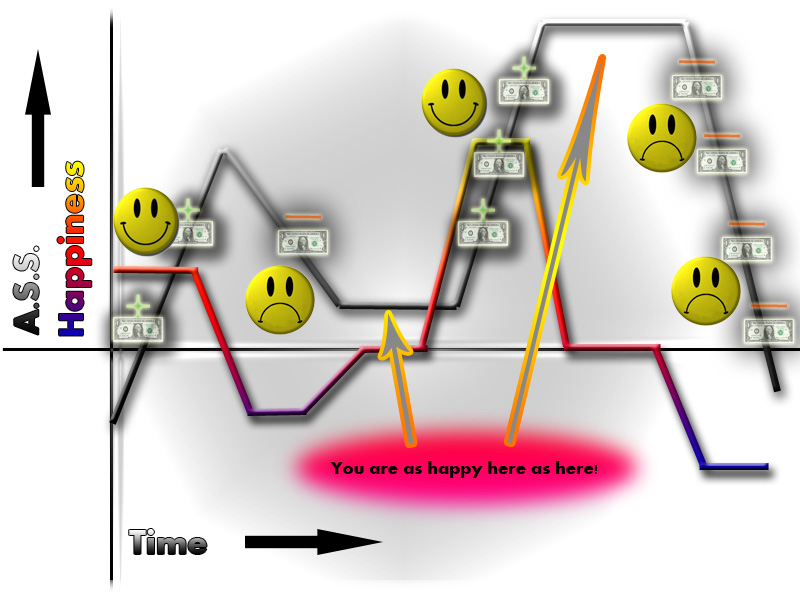This post is about a conversation I once held with a good friend of mine, Nadav Sherman. It is not a very serious topic, so take it lightly. We were wondering how to calculate the total amount of fun a person has during their lifetime. We reasoned as follows:
The absolute state score (ASS) of a person is a number ranking the person’s current state and possessions (it is a function of time). For example, if you have \$500,000 and a girl-friend, then your ASS is higher than that of someone identical to you without a girlfriend, but lower than that of someone identical to you with an additional \$1,000,000. Note that we do not specify exactly how to calculate the ASS, but we believe that it can be defined such that claim 1 below will be true. The actual value of the ASS. is not directly correlated to the fun a person has - a person with a million dollars and a beautiful girl-friend can be sadder than a poor lonely guy.
We define the effective fun of a person as a measurement of the instantaneous fun a person has in a given moment (again, it is a function of time). Our first claim is:
Claim 1: The effective fun equals the derivative of the ASS.
Again, this obviously depends on the exact function used to calculate the ASS. Instead of proving the claim above, I will give an intuitive reasoning as to why it makes sense. It is obvious that if your ASS. is going up right now, you are happy, regardless of the actual value of the ASS. Conversely, if your ASS. goes down you are sad, regardless of the value of your ASS.
Lets give an example. If you get a new girlfriend, your ASS goes up and so your effective fun (its derivative) is positive. If you lose \$100 your ASS goes down and so your effective fun is negative. The actual value of the ASS does not matter - only changes in the ASS influence your effective fun.
Please make sure you understand claim 1 before continuing to read (see also the following figure).
Now, in order to calculate the total amount of fun a person has in a given period we obviously integrate the effective fun function over the given period. We use the fundamental theorem of calculus, stating that the integral of the derivative of a function equals the function itself (note that as this is not the true fundamental theorem of calculus, which speaks solely of continuous functions, but its more in the spirit of it) to get the following:
Claim 2: The total fun a person has in a given period is the ASS value at the end of the period minus the ASS value at the beginning of the period.
This leads us to our final (morose) conclusion:
The total fun a person has in their lifetime equals their ASS on the day they were born minus their ASS on the day they die (no matter how long they lived or what happened during their lifetime).
